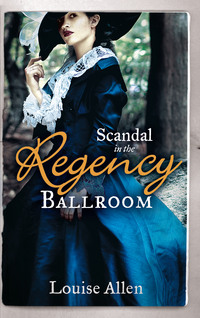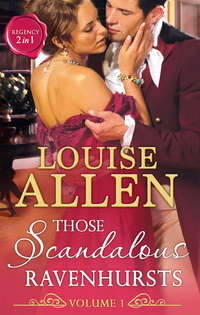
Полная версия
Convenient Christmas Brides: The Captain’s Christmas Journey / The Viscount’s Yuletide Betrothal / One Night Under the Mistletoe
To his relief, Miss Newsome laughed at his feeble diatribe. ‘You told us yesterday that you have no pressing engagements of a nautical nature, since your ship is in dry dock,’ she reminded him.
He had the good grace to know when he was defeated and capitulated, thinking of moments when it was better to salute as the ship went down. What did a few days matter?
So there he was, following a managing female up a flight of stairs and admiring her hips in motion under her dress.
I need a holiday far from here, he thought. Perhaps Constantinople or Madagascar.
She opened a door on a room that Joe knew at once must have been her brother’s. ‘Make yourself comfortable, Captain Everard,’ Miss Newsome said. ‘If you would come downstairs in a half hour, Mama would like to pour tea and hear about Davey.’
He managed some pleasantry which must have satisfied Miss Newsome, because she smiled and closed the door after saying, ‘One half-hour, if you please.’
He took off his shoes and set them by the grate, where coal glowed. His stockings came off next, the soggy things. Barefoot, he padded to the window and looked upon Kent in winter, with fields fallow. He saw an oast house in the distance with its distinctive two spires that looked like witch’s hats, where farmers dried hops, in preparation for making beer.
A good dark beer sounded appealing, but he doubted the Newsomes indulged themselves. The bed appealed even more. Taking off his uniform coat, he lay down with a sigh, unbuttoned his trousers and waistcoat and stretched out. Just a minute or two would be enough, he had no doubt. He closed his eyes.
Chapter Six
‘Verity, it is one hour since you directed Captain Everard upstairs,’ Mama said. ‘I am past ready to pour tea and listen to stories about Davey. You are certain you told him one half-hour?’
‘Positive, Mama,’ Miss Newsome said. ‘I’ll knock on his door.’
Verity went upstairs and stood outside the door a moment before she worked up the nerve to knock. She tapped and listened. Nothing. A second knock yielded the same result, so she turned the handle quietly and peered inside.
Captain Everard lay spread out on the bed, trousers and waistcoat unbuttoned and neckcloth askew. He was barefoot. He had somehow tacked his stockings to the fireplace, hung there to dry. He looked completely relaxed, flat on his back, hands spread out, snoring softly.
She had seen Davey sleep a time or two, but never a full-grown man with whom she could claim no relation. He intrigued her because he was handsome in a rugged sort of way, not like a solicitor or country gentleman who did nothing more strenuous than tend to other people’s genteel business.
This was a man of the sea; she could tell by the fine lines around his eyes caused by exposure to scouring winds and salt water. His hair was ordinary brown, but with flecks of grey in it. One of Davey’s letters had referred to Captain Everard as the Old Man, but she doubted him much over forty. When she remarked on it to her father, Augustus Newsome had told her that was the common navy term for captain. ‘And that, dear daughter, exhausts my entire knowledge of the maritime profession,’ Papa added.
She had no business to stand there gawking. Strange how he could look capable, even as he looked vulnerable. She watched his expression, which seemed to change as he lay there. He frowned, he sighed audibly, spoke as though he were giving an order, then settled back into deeper slumber. She hadn’t the heart to wake him.
Before she left the room, she quietly put a few more lumps of coal in the grate, then covered him with a light throw from the chair by the fireplace. Perhaps she shouldn’t have tucked the coverlet by his side, because as she straightened up, he opened his eyes, hazel ones, and looked at her as if he wondered where he was.
‘Captain, I didn’t mean to...’
‘’Pon my word, Miss Newsome, I never oversleep.’
They spoke at the same time, stopped, laughed, then spoke again. ‘Beg your...’
‘Such rag manners, ’pon my word.’
He put up his hand finally, but beyond that, remained as he was, stretched out and comfortable. Verity thought that singularly charming, for some reason.
‘I obviously overslept, Miss Newsome,’ he said, not moving. ‘Please extend my apologies to your mother and tell her I will be down directly.’
Verity made an executive decision. ‘Stay where you are, Captain. You look comfortable and would probably go back to sleep if I left you alone.’ She went to the door, grateful she had not closed it. ‘We keep country hours, so dinner is at six.’
He laughed softly, turned over and went back to sleep as she stood there.
* * *
Awake, alert and with his hair combed—he did have an amusing cowlick—Captain Everard presented himself downstairs at six o’clock. With a bow, he greeted them and said, ‘Now, where was I?’, which made Mama laugh, a sound Verity had not heard since news of Davey’s death.
Dinner was sheer delight, somewhat to Verity’s surprise. Captain Everard’s first impression as a cut-and-dried, strictly business sort of man was perhaps not accurate. Had oversleeping in a soft bed rendered him more casual? He asked a few questions about Papa’s business and even seemed interested when her father launched into detailed description of his duties as chief steward of Lord Blankenship’s various holdings in this part of Kent.
‘I noticed oast houses,’ Captain Everard said, as he passed the beef roast to Verity. ‘Do you make your own beer on the property?’
‘We call them hop kilns here in Kent,’ Papa corrected. ‘And, yes, we do. If you have time tomorrow, I could take you to our brewery.’
‘I will go gladly,’ Captain Everard said. ‘Please tell me it is a good, dark beer with a woody taste.’
‘I can do that, sir,’ Papa said and beamed at Verity. ‘You could come, too, my dear, even though I know your opinion of beer.’
‘I might,’ she replied, surprising herself.
The ease with which Captain Everard inserted himself into their house impressed Verity, because he made it simple to include her brother into the dinner-table discussion in a way that caused her mother no pain. After a few well-placed questions, Mama started talking about Davey’s early education at the hands of the local vicar and the way he wore them down with his patient but firm insistence that the seafaring life was the career for him.
‘When he came aboard Ulysses, his excellent scores on his lieutenancy exams and good references from his captain convinced me that we were lucky to have David Newsome,’ the Captain said over the final course of fruit and nuts. ‘And so it proved to be. He was an apt student of the sea.’
They adjourned to the sitting room, since no one in the Newsome household had enough puffed-up consequence to leave the gentlemen with cigars in the dining room and the ladies engaged in idle chat elsewhere. Verity watched Mama, pleased with her eagerness to learn more of Davey’s short life on the water and hoping she would not overexert herself.
She shouldn’t have worried. Captain Everard had no trouble in reading the signals either, telling her worlds about his care of his own crew.
‘Please, Captain Everard, tell me everything you remember about my son,’ Mama said, once they were seated and she had taken out her mending.
Verity watched as the Captain’s demeanour turned thoughtful, and then amused. ‘I have such a story for you,’ he said.
Mama and Papa both leaned forward, eager as young children prepared for a treat of epic dimensions.
‘If you looked in David’s leather case, Miss Newsome, you found volumes one and four of The Mysteries of Udolpho,’ he said, settling back.
‘But no two and three,’ Verity said.
‘Nowhere in sight. We were suffering through months of blockade duty off the coast of Spain.’ He passed his hand in front of his face. ‘It’s beyond me to describe the tedium of the blockade so I will not attempt it. Morale was lower than a dungeon cell in the Tower of London. David tapped on my door one night and asked for a moment’s time.’ He chuckled at that. ‘Hell’s bells—beg pardon, ma’am—I’d have given him all the time he wanted, anything for a diversion.’
And we here in England take your efforts and our safety for granted, Verity thought, as she picked up her knitting.
‘He said he wanted to write a play for the crew to perform, based on Udolpho,’ Captain Everard continued. ‘I asked him what he planned to do about the two missing volumes, and he just waved his hand and said, “That’s a mere trifle.”’
Mama pressed her handkerchief to her eyes. ‘He said that often enough at home. Nothing daunted him.’
Verity watched the captain observe her mother, as if assessing her and not wanting to cause her undue anxiety. He must have liked what he saw, because he continued. ‘The scamp called it The Mystery of Udolpho on Short Rations, or Better Two Volumes Than None. Signor Montoni, the villain of the piece, looked and behaved remarkably like Bonaparte.’
‘Who played our hero, Sue Valancourt Brown?’ Verity asked.
‘Can you doubt?’ the Captain teased. ‘Your irrepressible brother.’ He sighed. ‘I was asked to play Emily St Aubert’s father, so was mercifully allowed to die early in this masterwork. Perhaps he assumed that, as captain, I had more important things to do, although I did not.’
Mama and Papa chuckled at that. Verity’s eyes filled with tears as they held hands, something she had not seen in months. It was as if Davey’s death had stifled all normal emotions. But here they were, holding hands as she remembered from earlier, happier times.
Captain Everard was looking at her parents, too. He smiled, but she saw no joy in his eyes. She wondered what a man like him thought of settled lives and domestic hearths, and the everyday sameness of a routine life. Did he envy it? Would it bore him? Heaven knew nothing appeared likely to ever change her ordered, quiet life.
‘Miss Newsome? Are you on a distant planet?’
Startled, she glanced at the captain. ‘I don’t know where I was,’ she said honestly, then knew she must exert herself. ‘Er...well, I would like to know who was convinced or coerced into playing the heroine, Emily St Aubert.’
‘What do you think my second luff would do?’ he asked in turn. ‘You knew him better than I did.’
That took no imagination. She only wished she could have witnessed the diplomacy required. ‘He probably found the biggest, ugliest, hairiest man on the Ulysses to play that dainty French creature,’ she teased in turn.
‘Precisely, my dear,’ he said. ‘The Ulysses happens to rejoice in a cook with a peg leg and a patch over one eye. He hawks continually and we only pray he does not do it over the porridge. You’d have thought he was born for the role. I dare even Mrs Radcliffe herself to find a better Emily.’
Mama burst into laughter, which made Papa tighten his grip on her hand and carry it to his lips for a kiss.
You are a master, Verity thought, as she allowed herself to relax and let Captain Everard carry them all aboard a wartime frigate presenting a comedic version of the first novel she ever stayed up all night to finish, suffering along with Emily and Madame Cheron, and a host of characters transformed somewhat in the HMS Ulysses version because the middle two volumes were missing.
‘And that was that,’ the captain concluded. ‘All the ships in our vicinity on the blockade took turns rowing over for an evening of entertainment, courtesy of your remarkable son, Mrs Newsome. Lord St Vincent himself took me aside and told me how lucky we were to have such a lovely Emily.’
He looked around the sitting room and she saw it through his eyes. A shabby, cosy room—a better word than small—with outdated wallpaper and old furniture. She wondered what he was thinking.
She knew soon enough and it warmed her heart. ‘By God, Mr and Mrs Newsome, you are kind to let me visit for a day or two,’ he said. ‘I can’t recall the last time I was in an actual home.’
Mama’s eyes filled with tears, but Verity felt only relief. She wasn’t crying for Davey this time, but a solitary frigate captain sitting in her parlour and sipping sherry.
‘Davey would want you here,’ Mama said.
And so do I, Verity thought.
Chapter Seven
‘I’m not certain I have ever met braver people than your parents,’ Joe said, after Miss Newsome’s parents said goodnight. ‘I cannot recall a time when grieving parents have invited me back to talk about their son.’
‘I’ll admit I was surprised, as well,’ she said. She handed him a candle. ‘Goodnight, Captain Everard, and thank you again for agreeing to stay a few days with us.’
She waited for him to go up the stairs before her. When he stood there, she headed towards the kitchen. To his own surprise, he decided to follow her.
‘Wait up, if you please,’ he said. ‘Are there any of those tea cakes left?’
He wasn’t hungry; he wanted to spend more time in Miss Newsome’s orbit. The odd lethargy troubling him since Trafalgar was starting to lift. In telling the Newsomes about Davey’s life instead of his death, he felt more energised, more optimistic. Once the Ulysses was repaired and back to blockade duty, maybe things wouldn’t be so dreary.
‘I confess it,’ he told her as they headed to the kitchen. ‘I love cake. Cake in any form, even stale cake. Cake.’
She smiled as Joe had hoped she would, throwing off some years and cares of her own. ‘Is that the first thing you ask for, when you reach port?’ she asked and, to his ears, she sounded interested.
‘Water first, a big pitcher of it. Clean water that came out of a well and not a wooden keg,’ he said.
‘And then cake?’ she prompted, when he wondered why he was rattling on, at least, rattling on for him.
‘Aye, cake, two or three layers if it is available, with lots of icing, the gooier the better,’ he said and followed her into the pantry. ‘I swear there were times in the South Pacific as a midshipman that I would have killed for cake.’
Miss Newsome laughed and reached for a breadbox. ‘No need for carnage,’ she said as she took out a plate of tea cakes. ‘Will these do?’
‘Aye, they will.’
‘Come then, Captain. The pantry is a little crowded.’
True, it was, but he hadn’t minded proximity to Miss Newsome. He followed her into the servants’ dining room and sat down where she indicated.
Miss Newsome put a plate in front of him and set a place for herself, too. ‘Eat as many as you want, sir, but save one for me. I like the plain icing.’
Since they were small, he set four on his plate, careful to leave several plain cakes for his late-night hostess. She ate with relish and made no comment when he finished his four, eyed the plate and appropriated the remaining four.
She seemed to look for signs he was ready to retire, but saw none. She must have been wondering how to entertain him.
He had the same thought, because he gave a self-conscious laugh and shook his head. ‘Here we are,’ he said. ‘I am depriving you of sleep just because I enjoy the novelty of sitting somewhere with no demands on my time: no emergencies brewing, no bosun grousing about shiny new sailors who won’t stop puking every time the ship yaws and no surgeon fretting because we have run low on medicinal spirits and who in God’s name is drinking it?’
Verity laughed at the picture he painted. ‘Now, sir,’ she teased, ‘you come ashore wearing a glamorous cape and a magnificent, intimidating fore-and-aft hat, and expect mere mortals to think your exalted position can be as mundane as our lives are on shore?’
‘Guilty as charged,’ he replied, with considerable aplomb. ‘You cannot imagine the boredom of life on the blockade.’
‘No, I cannot.’
‘Damn me if I didn’t leap with joy when we were pulled out of formation to follow Admiral Nelson to Trafalgar,’ he said, his eyes full of sympathy. ‘Meeting you and your parents, I wish to God he had summoned someone else.’
What could she say to that? He sat before her, feeling tired. Suddenly she picked up a napkin and brushed off the icing, which could have embarrassed him, but didn’t.
He smiled at her. ‘I never was a tidy eater.’
‘Fiddle,’ she said. ‘Icing is ungovernable at times. You had to obey the Admiral. You had no choice, did you?’
‘None.’
‘I assume Admiral Nelson had his pick of frigates and captains and he chose you and the Ulysses because he knew you would not fail him,’ she said.
‘What a battle it was.’
‘One to tell your children some day,’ she said.
‘Or yours,’ he replied. ‘Your brother was valiant to the end.’
He startled himself by leaning across the table that separated them and kissing her forehead.
‘With that, I am off to bed,’ he told her. ‘I certainly won’t burden your parents with much of a visit, in spite of their kind entreaty. I do think that before I leave, you and I should gather some ivy. Your sitting room looks a bit bare, don’t you think?’
Verity stared at him. He gave her a wink, then touched his dessert plate and planted some icing on her nose.
‘I’m an early riser and ivy awaits, Miss Newsome. Goodnight.’
Chapter Eight
‘I am starting to remind myself of every stereotype about the Royal Navy that I ever heard of,’ Joe told his shaving mirror before breakfast. ‘You dog, you.’
He tried to let dismay at his casual behaviour last night exact its obvious toll, but all he felt was pleasantly tuned up. He had slept well for the first night in ages. He knew tackling ivy and chatting with Miss Newsome would not be onerous.
She waited for him in the breakfast room, still dressed in sombre black, but with high colour to her face. ‘Good morning, Captain Everard. I trust you slept well?’
‘Better than any night in recent memory,’ he replied as he eyed the bacon all lined up like good soldiers on the sideboard. ‘I am about to embarrass myself here.’
‘I asked Cook to fry extra bacon. Have all you want.’
He took her at her word and finished by overburdening his plate with enough eggs to maintain proper balance. Two slices of toast continued the symmetry. He sat down and eyed her single baked egg and one slice of bacon.
‘Miss Newsome, you will dry up and blow away with that short ration,’ he commented.
‘Hasn’t happened yet,’ she said, placing a napkin in her lap. She got up and added two more slices of bacon. ‘You’re right. I don’t want to blow away.’
Joe tried to be proper and cut his bacon. A glance at Miss Newsome picking up her bacon gave him leave to follow suit and made her laugh.
‘I’ll tell you a story on me, Captain,’ she said, wiping her lips. ‘A mild-mannered fellow, Weltby’s solicitor, started visiting me. Papa assured me he was interested, so I humoured him. Here is the odd part: For two years he showed up Tuesdays, ate breakfast with us, of all things, and sat silent in the sitting room until he left for work. He stared at me; it was unnerving. Breakfast?’
Two years? What is wrong with the men of Kent? he thought as he happily dispatched a fried egg.
‘After two years, I decided there would never be an offer of marriage, which, truth to tell, I found reassuring,’ she said. ‘Perhaps he liked the food. One morning I picked up my bowl of porridge and said, “Sir, I am taking our peculiar courtship to an entirely new level.”’ She laughed out loud. ‘I drank the milk from the bowl. He ran out of the house and was never seen again.’
Joe leaned back in his chair and joined her laughter. ‘Miss Newsome, you two would never have suited.’
‘Precisely. Answer me this: Captain, would you cry off if the lady you had been courting for two years suddenly drank from the porridge bowl?’
‘In the first place, I cannot imagine such a scenario,’ he said. ‘In the second place, two years? You can drink from that vase of mums over there, if you wish. I am indifferent to the matter.’
It was her turn to laugh and promise him she had no such plans. ‘Mama did lament that I would probably never have another such opportunity,’ Miss Newsome told him. ‘Opportunity for what, I should have asked her.’
He finished breakfast with Miss Newsome, pleased with her easy manner and good humour. There she sat in full mourning, vibrantly alive.
‘Mama has been resisting my hints that the house needed more greenery to properly celebrate the season,’ she told him as they started to walk down the fence row to the nearest copse. ‘When I suggested you and I might go hunt the wild ivy before you left, she practically leaped about in agreement. I swear I do not know what has got into her.’
‘I’m grateful she let me tell her about her son,’ he said, transferring the basket to his other arm so he could steady her on an icy patch. Well, it looked icy to him.
‘We have all been too silent since your letter.’ She stopped. ‘How many of those do you write, sir?’
He considered, knowing the butcher’s bill would startle her. ‘Let me think: I have been a post captain for eight years. Before that I was a captain. Before that, first lieutenant for a captain who never could bring himself to write such missives. Probably more than two hundred, Miss Newsome. Fleet actions are a nasty business, but so are accidents and illnesses.’
‘You poor man. And we only had to receive one.’
‘It’s not the same,’ He knew the personal loss he suffered with each death, whether the sailor was a second lieutenant like David Newsome, or an able seaman. Joe was the man in charge, until a battle or disease reminded him he was no such thing. ‘It’s not the same.’
He looked into her eyes and doubted she believed a word of it.
‘Thank you for your sacrifice.’ She hurried on ahead, either giving him a moment to grieve, or her such a moment. Perhaps it was both.
He joined Miss Newsome at a stone wall which had once formed the back of a crofter’s cottage, from the looks of it. She simply stood there, staring at the ivy.
‘Miss Newsome?’ he said cautiously. ‘I’d offer you a penny for your thoughts, but I suspect I know them.’
She turned around, startled, then relaxed. ‘Perhaps not. This is the time of day when class begins in the school for tenants’ children that I used to teach.’
‘I had no idea,’ he said. ‘I assumed you lived quietly at home.’
‘I educated children for five years,’ she said and he watched her eyes soften. ‘Lovely children.’
‘May I ask...?’
Her eyes hardened then. ‘Lord Blankenship, who employs my father, informed me that he had a poor relation needing work. I was released and another put in my place.’
She pursed her lips together and frowned. Joe knew if this were his misfortune, he would be swearing and throwing things about. Obviously Miss Newsome was better equipped for ill fortune than he was.
‘But, sir, here is holly, with berries properly red. You cut there and I will hold this end.’
He did as she asked, struck by the fact that a woman of Miss Newsome’s obvious calibre would even consider work. When he finished, she deftly wound the length of ivy into the basket he had set down.
‘Lord Blankenship has found me similar employment in Norfolk,’ she said. ‘I am to go there on the mail coach after Christmas.’
‘I confess I do not understand why you need employment,’ he said, then knew he owed her an immediate apology for inserting himself in family matters that were none of his business. ‘Beg pa—’
‘Oh, please, not that,’ she interrupted. ‘Perhaps we Newsomes appear more genteel than you think.’
‘I never thought...’
Shut up, Joe, he told himself. Admit your interest, at least to yourself.
She indicated a rustic bench and sat down, giving him leave to do the same.
‘Papa is an estate manager of several large properties,’ she said, ‘but we fall far short of gentry. What is your background, sir, if I may ask?’









